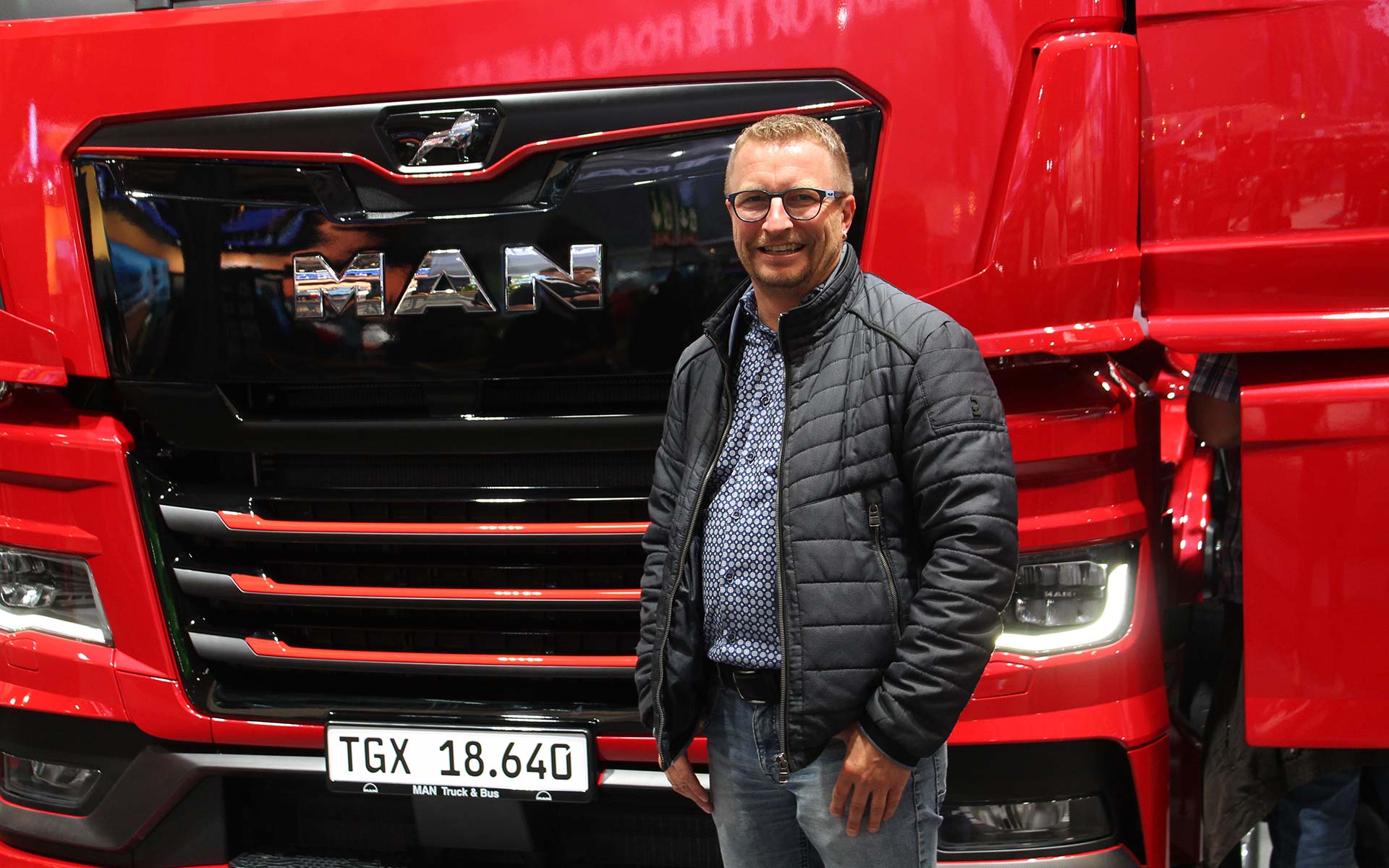
The future begins with the next generation
Carsten Witte, an instructor at BBS Burgdorf, focuses on actively promoting young talent instead of just complaining about a lack of young drivers. He thinks that there’s no place for whining and is very committed to promoting young drivers’ enthusiasm and motivation.
Carsten Witte, a teacher at the BBS (vocational training school) Burgdorf and a “master craftsman” for motorised transport and a dangerous goods officer at BSL (Office for Safe Logistics), believes that it’s not enough for companies to just indicate that they are looking for new drivers and trainees on their websites. In his opinion, it’s much more important and effective to engage boys and girls about the offers and opportunities in the transport sector while they’re still in school. “This is where companies should invest more time and money,” says Witte, “they should go into schools, offer internships, invite young people into the companies to give them an insight into the practical side of it.”
He knows exactly what he’s talking about. Not just because he trains future professional drivers as a teacher, but also because he sat behind the wheel of a truck himself for many years. Witte completed his vocational training to become a professional driver as an 18-year-old in 1988. He drove trucks on both domestic and international routes. “My experience comes from real life,” he says. On the advice of his boss at the time, he also completed training as a “master craftsman” for motorised transport, which authorises him to train drivers. While working as a team leader at a large courier express company, he was offered the chance to work as a lecturer and teach modules. “I get along well with students because I’m not just a pure theorist, I also come from a practical background and can reach them in a very different way,” says Witte.
“You need to be in it to win it.”
His practical approach also includes his conviction that everyone can do something to bring about change. “Don’t just see the negative side of things. I don’t want to gloss over anything either, but we have to look forward optimistically,” he says, “there aren’t problems, just solutions.” As for his own career as a professional driver, he is certain that “no other job could have offered me what I experienced as a driver.” For example, the fact that he gets to spend every day with other people. Needless to say, there are also negative sides, as in any other profession. But one thing that is clear to him about the driving profession is that:
“You’re systemically important.”
This was true even before the COVID-19 pandemic, Witte says. He adds that working as a professional driver provides a solid foundation for career advancement. “At the time, I wouldn’t have thought that there would be so many opportunities either,” Witte says, pointing to the chance to train as a “master craftsman” for motorised transport, as well as his involvement in other committees, such as examination boards and the Committee on Transport, or his training as a dangerous goods officer. Young people are needed everywhere, he states.
Once they have decided to start training as professional drivers, it’s also a matter of convincing them to actually stay in the job, he continues. With the question of how this can be achieved at the back of his mind, Carsten Witte, for example, organised themed tours of various trade fair stands together with different manufacturers from the industry during the IAA Transportation trade fair last autumn. He and his classes also visited the MAN stand at the event in Hanover and got to know the latest vehicles and technology. “Everyone was satisfied and some of them are still raving about it now,” Witte takes stock, looking back.
For him, the most important thing is to reach out to young people who are on their way to becoming professional drivers.
On the one hand, this is achieved through wide-ranging lessons, which always take place in three-week school blocks and during which the trainees learn about the job in 12 learning fields. In addition to the theoretical knowledge, it is also essential that they apply it in practice. This includes first and foremost driving, but also other important topics, such as pre-departure checks. Pupils are taught this practical content using real vehicle models from the school. In addition, students are also allowed to bring trucks from the companies they work for.
Witte also thinks that the vehicles and their equipment are key factors in 70 per cent of prospective drivers’ decisions to join the profession. It is therefore all the more important that companies and manufacturers use the interest of the “customers of tomorrow” to convince more young people to embark on this challenging job behind the wheel. This process must start with offering appropriate programmes and training for school leavers or those who are about to graduate. “There’s a lot of people who really enjoy this job,” says Witte from experience, adding that speaking to people directly can help greatly to ensure that it stays that way in the future.




